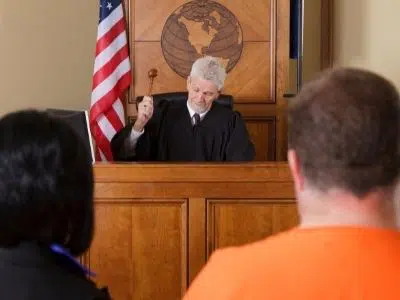
Houston criminal defense attorney Lisa Shapiro Strauss has represented many clients who have been arrested and charged with multiple misdemeanors and/or felonies. One of their biggest concerns is how long of a sentence they will have to serve if convicted of all the charges. Will their sentences be served concurrently, or cumulatively — stacked one after the other?
On This Page
In Texas, judges have broad discretion when it comes to sentencing. When a defendant is convicted on multiple charges at the same time, the judge can rule that the defendant serve their sentences either concurrently or cumulatively. When making their decision, judges consider many factors including:
- Were the crimes committed separately or independently of one another?
- Did the crimes involve separate acts or threats of violence?
- Were the crimes committed at different times or at the same time in a “single criminal episode?”
The Case of Defendant X
Let’s look at the case of Defendant X. Defendant X was driving home from a nightclub when they were pulled over on suspicion of DWI. Not only was Defendant X’s blood alcohol level way over the legal limits, but a search of their vehicle turned up a large quantity of cocaine.
Defendant X was charged and subsequently convicted for both DWI and felony drug possession. They were sentenced to one year in prison for the DWI charge and five years in prison for the drug conviction.
Defendant X Serves Sentences Concurrently
In most cases, the judge will order that the two sentences be served concurrently — or put more simply, at the same time. If a judge orders Defendant X to serve their terms concurrently, they’ll be out of prison in five years instead of six.
According to Article 42.08 of Title 1 of the Texas Code of Criminal Procedure, which states: “When the same defendant has been convicted in two or more cases, judgment and sentence shall be pronounced in each case in the same manner as if there had been but one conviction.”
In addition, Title 1, Chapter 3, Sec.3 of the Texas Penal Code, states that “when the accused is found guilty of more than one offense arising out of the same criminal episode…the sentences shall run concurrently.”
Probation can also be served concurrently.
Defendant X Is Ordered to Serve Culmative or “Stacked” Sentences
However, there are situations in which a judge may order a defendant to serve their sentences cumulatively. Cumulative sentences are also known as consecutive or “stacked” sentences. If the judge ordered Defendant X to serve a stacked sentence, they would spend six years in prison: first, one year in prison for the DWI charge; this would be immediately followed by five years for the drug charges.
In some cases, stacked sentencing is mandatory. For instance, when an inmate is charged and convicted of a crime while serving a sentence for another crime, they’ll finish serving time for the original crime, then start serving time for the second one.
Answers to Your Questions About Criminal Defense
What Evidence Does the Prosecutor Have to Disclose to the Opposing Attorneys?
Prosecutors are required by law to share certain items, like:
• Offense reports
• Documents and papers
• Crime Scene photographs
• Written or recorded statements of the defendant or witnesses
• Statements of law enforcement officers
But prosecutors are not required to share their notes or reports about the evidence obtained, nor are they required to disclose “any designated books, accounts, letters, photographs, or objects or other tangible things not otherwise privileged…”
Are an Arraignment and a Trial the Same Thing?
No, an arraignment and a trial are both appearances before a judge, but they serve different purposes.
An arraignment is a defendant’s first appearance before a judge after being arrested and charged. They will have their charges read against them, and the judge will make sure the defendant understands the charges against them. The defendant will also enter an initial plea at this time.
A trial is when a prosecutor presents evidence against the defendant, and the defense attorney will try to either demonstrate the defendant’s innocence, or prove that they deserve lesser charges.
Is it Legal to Film an Encounter with the Police?
It is legal and smart to videotape encounters with the police, regardless of what a law enforcement officer says. Your video could be used to prove your guilt or innocence. As long as you follow their orders and don’t interfere with their investigation, you’re within your rights.
Your phone also cannot be confiscated, nor can police ask to see photos or videos, nor can any of your data be deleted.
How to Avoid a Stacked Sentencing
Being ordered to serve cumulative or stacked sentences can add many years to the total time a defendant spends in jail. If you’ve been arrested on multiple charges in Houston or Harris County following a single criminal episode, it’s important to take steps to protect your rights and keep any jail time to a minimum.
Lisa Strauss Shapiro is a Houston criminal defense attorney who has helped clients in Houston and surrounding communities who have been charged with multiple misdemeanors or felonies. Your situation may look hopeless, but don’t give up! Lisa is a former County DA turned criminal defense lawyer — she knows many effective defense strategies that can result in lesser charges and fines, and even acquittal for her clients.
Contact the law offices of Lisa Shapiro Strauss through our website or call us at (713) 429-7310 to discuss your case.




